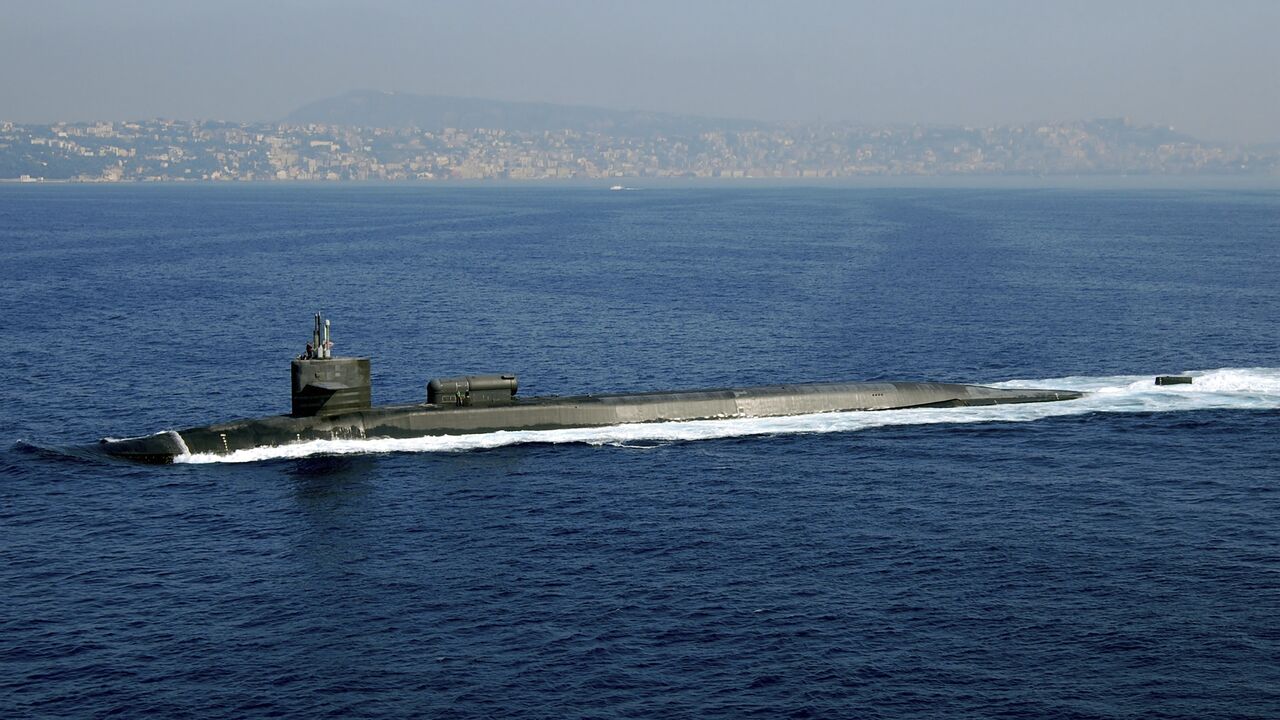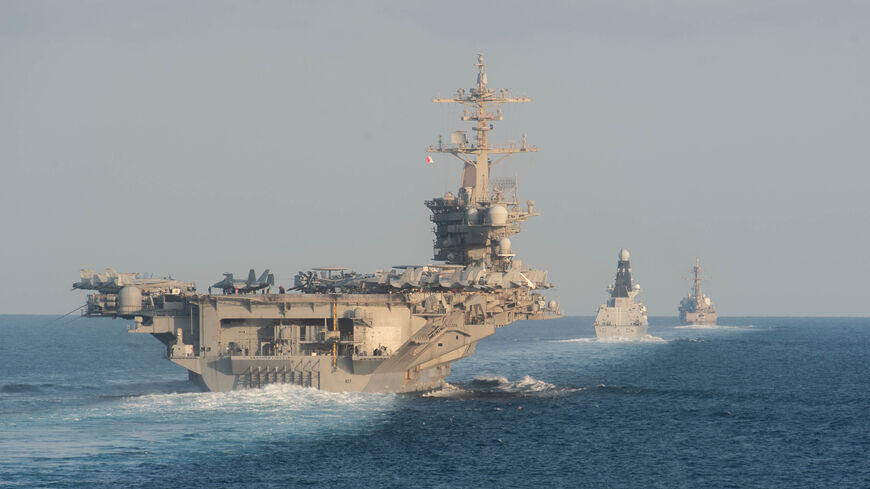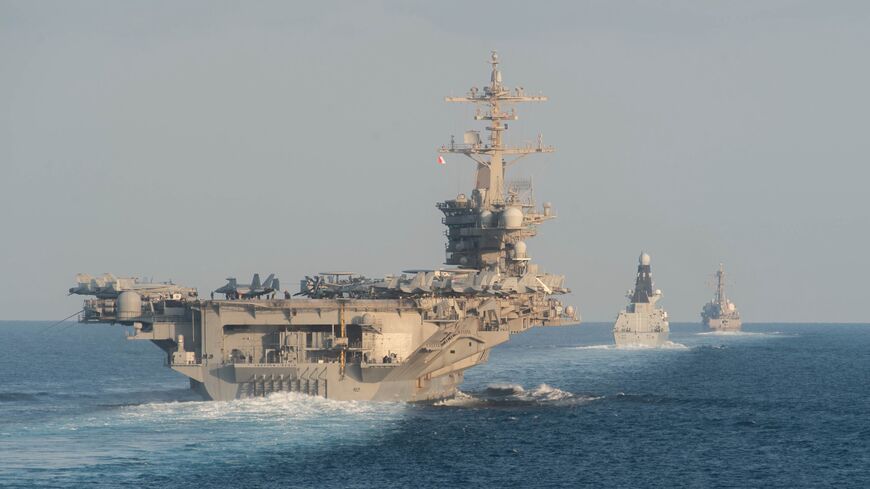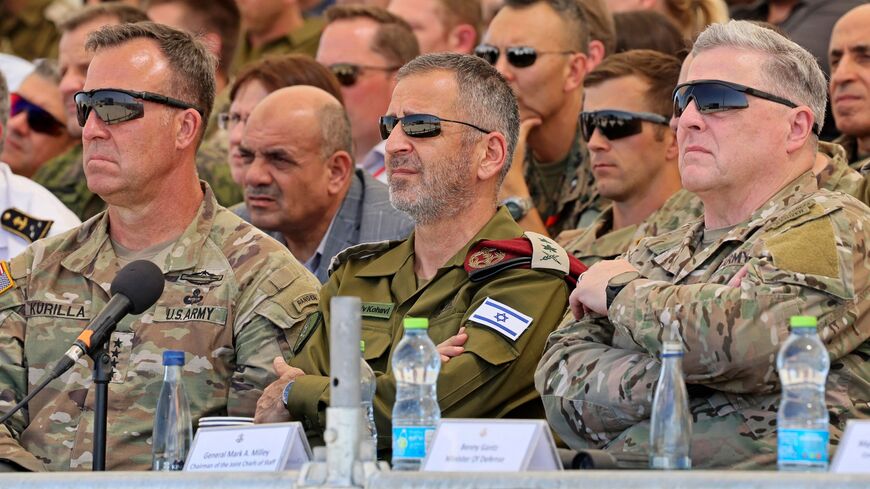USS Georgia guided missile submarine arrives in Middle East
The Georgia's arsenal multiplies the US Navy's precision-strike capabilities near Iranian shores as Israel awaits retaliation for the assassination of Hamas leader Ismail Haniyeh at an IRGC guest house in Tehran last month.

WASHINGTON — The USS Georgia, an Ohio-class nuclear-powered submarine capable of carrying more than 150 Tomahawk cruise missiles, has passed through the Suez Canal after several weeks in the Mediterranean, the Pentagon confirmed on Tuesday.
The United States deployed the USS Georgia in response to retaliation threats from Iran and Hezbollah against Israel for twin assassinations of Hezbollah’s top commander, Fuad Shukr, in Beirut and Hamas’ political leader Ismail Haniyeh in Tehran last month.
The Georgia has remained in the Mediterranean since then as Israel prepared for Hezbollah’s response, which the Israeli Air Force preempted with strikes across southern Lebanon in late August. Hezbollah then fired more than 320 drones and rockets into Israel.
Why it matters: Both sides have since returned to more regular tit-for-tat strikes over Israel’s northern border, suggesting willingness to avert further escalation, but the threat has not abated.
Israeli officials have threatened for months to launch a large-scale military offensive against Hezbollah if the US- and European-led diplomatic track fails to defuse Hezbollah’s cross-border attacks.
Israeli Defense Force chief of staff Lt. Gen. Herzi Halevi toured the country’s northern front on Monday to assess preparations after a Hezbollah drone penetrated Israeli air defenses and struck a residential building in Nahariya but caused no casualties.
Iran's evergreen threat: Meanwhile, Iran’s retaliation for Haniyeh’s killing has yet to come. US officials are taking the threat seriously.
Iranian leaders have increasingly hinted in recent weeks that the retaliation may come via unconventional means. The commander of Revolutionary Guard Corps (IRGC), Hossein Salami, warned in a speech on Monday that Iran’s response will differ from its previous attacks.
Supreme Leader Ali Khamenei hinted to a group of students in Tehran last month that there are means of fighting other than “taking up arms” in the modern era, including cyber means.
The Biden administration has warned Iran’s leaders not to carry out an attack that could trigger an escalation, which US officials have said could have significant negative consequences for Iran’s stagnant economy.
The top US commander in the Middle East, CENTCOM chief Gen. Michael “Erik” Kurilla, met with Israeli defense leaders on Sunday to coordinate plans for defensive measures in case of an attack on Israel.
The head of the IDF’s Northern Command, Maj. Gen. Ori Gordin, presented Kurilla with Israel’s “operational plans for Lebanon,” the Israeli military said.
What’s next: Hopes for reaching a cease-fire agreement between Israel and Hamas to pause the war in Gaza and avert a potential Iranian attack on Israel grew even more remote this week.
Hamas forwarded new demands after killing six hostages initially captured last year during the militant group’s Oct. 7 bloody incursion into Israel, White House National Security Council spokesperson John Kirby confirmed Tuesday, without specifying details of the demands.
Multiple outlets reported that Hamas’ request included 100 additional Palestinian detainees be freed by Israel as part of the cease-fire.
An Israeli cabinet official told Haaretz on Tuesday that Hezbollah appears to be preparing for prolonged conflict in case Gaza cease-fire talks collapse.
The United States has a Navy amphibious ready group equipped with more than 3,000 Marines and sailors in the Mediterranean, as well as well as two aircraft carriers and accompanying destroyers capable of intercepting ballistic missiles in Gulf waterways.
But the carriers cannot be deployed indefinitely, as US officials cautioned their Israeli counterparts last week. The USS Theodore Roosevelt is scheduled to end its deployment in the coming days, but could be extended in the region, US officials said.
Know more: Despite months of warnings from the US and European powers, Iran has provided Russia with an undisclosed number of short-range ballistic missiles, the Biden administration announced on Tuesday.
Iranian officials have denied the charge, but European officials have warned it will have significant impact on relations if the US intelligence is confirmed. The United States, UK, France and Germany hit Iran's commercial airline industry and IRGC officials with additional sanctions in response to the alleged transfer.
The delivery of ballistic missiles to Moscow could mark a major setback for Iran’s recently sworn-in President Masoud Pezeshkian, who ran on promises of economic growth and improving ties with the West.
US officials on Tuesday said they believe Russia could use the close-range Iranian missiles to target infrastructure in Ukraine within the coming weeks.







